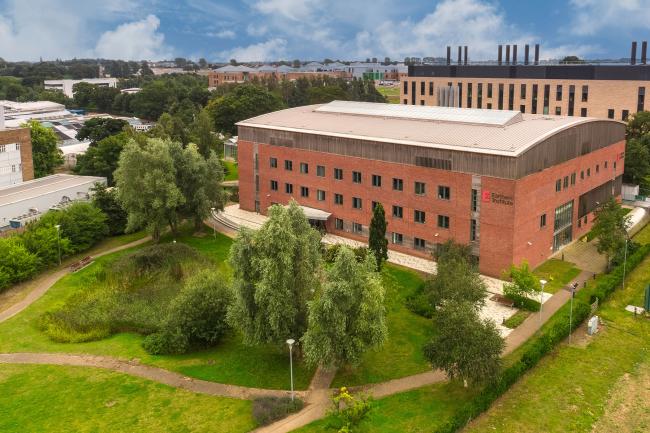
Supported by UKRI’s Infrastructure Fund and Digital Research Infrastructure Programme, BioFAIR aims to establish a cohesive, UK-wide digital research infrastructure that bridges current gaps between researchers, digital research technical professionals, existing institutional digital research infrastructures, and the funder-community partnership.
BioFAIR exemplifies the transformative impact that can be achieved when major UK funders work in partnership with the research community.
Initially proposed by the ELIXIR-UK community, the BioFAIR concept received crucial support from the UKRI Biotechnology and Biological Sciences Research Council (BBSRC) and Medical Research Council (MRC) from the outset.
Robust engagement and early-stage investment to scope BioFAIR’s feasibility and potential impact ultimately paved the way for this bold project to elevate UK life science research to new heights.
Professor Neil Hall, Director of the Earlham Institute and joint Head of Node for ELIXIR UK, said: “ELIXIR UK, as the national node of the European Research Infrastructure for Life Science Data, is delighted that the UK has invested in BioFAIR.
“BioFAIR will be a transformative force in data management, data standards, and data reuse. This will ensure the UK is at the forefront of the AI revolution, which is reshaping how bioscience is conducted.”
Carole Goble, Professor of Computer Science at the University of Manchester and joint Head of Node for ELIXIR UK, also welcomed the news, describing BioFAIR as "a focal point for delivering state of the art FAIR data services”.
A real step-change
BioFAIR will be a catalyst for innovation and discovery and over its five-year life span will:
- accelerate the adoption of findable, accessible, interoperable and reusable (FAIR) data principles across the UK life sciences, making it more useful and valuable to researchers than ever before
- unify the UK’s currently fragmented digital research landscape, fostering unprecedented opportunities for collaboration and coordination among the national life sciences community
- break down barriers to democratise data accessibility, giving UK researchers the resources and autonomy needed for innovation and discovery to flourish
- coordinate and deliver extensive training and support for practitioners at all levels, building critical workforce capacity and securing the UK's position as a global leader in life sciences.
Fundamental to the BioFAIR concept are its four capabilities - data commons, method comms, community centre, and knowledge centre - with each one driving a key component of the project.
All four capabilities will be assembled from existing data tools and services developed and deployed by the UK and international life science research communities.
Collectively, however, they signify an important ethos of one community driving and sharing responsibility for the management and use of national assets to maximise accessibility, usability and impact. They are:
The data commons will catalogue sources of existing datasets, making them easily accessible to life science researchers. It will support FAIR data management throughout the data lifecycle, from the point of collection to deposition and, crucially, to reuse.
The method commons will enable the collaborative use of shared computational workflows with a national workflow capability. It will feature a national repository of trusted and curated data methods and workflows, contributed by the life sciences research community, supporting reproducible data analytics and advancing data-driven bioscience.
The community centre will provide a focal point for sharing expertise, best practice and troubleshooting within disciplines.
The knowledge centre will enable those driving the collection and curation of existing knowledge resources and training materials to advance best practice in research data management.
Together, the community and knowledge centres will create a collaborative environment that supports more effective dissemination of research data management knowledge and skills across the life sciences research community.










